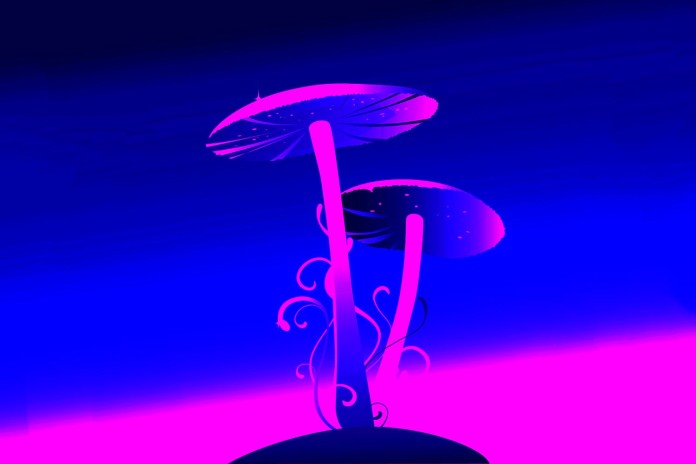
As anecdotal evidence continues to mount for the beneficial effects of microdosing mushrooms, Canada medical experts push for special dispensation.
All over the globe, healthcare providers and researchers have been pushing for better access to psychedelics. No, not because they want to get lit at a festival this weekend— but because they believe it could be the next breakthrough treatment for the millions of mental health sufferers worldwide. Canadian healthcare providers are stepping. Up in a big way, lobbying Health Canada to review the outdated restrictions that have been placed on psychedelic drugs. While the country became one of the first to legalize recreational marijuana use nationwide in 2018, many believe that legalization of psychedelics could be the next step in creating a more friendly, and better balanced, world.
Last August, Canada’s Health Prime Minister allowed permission for four terminally ill cancer patients to be treated using psychedelic therapy, with some incredibly positive results. Leading to a further outcry for more relaxed policy concerning the practice and use of substance. Microdosing, Canada still has yet to legalize— however it is commonly practiced, with more users trying out this DIY mind hack each day. Authorities seemed nonplussed at the moment, with few negative enforcements made on the substance that has long been favored by religious ceremonies and those looking for better mental fitness. To the point where researchers are now starting to grind down on governments, as the results seem too good to ignore.
A Growing Body of Evidence
While psychedelic research seemed to be gaining momentum in the early 20th century, the brakes were firmly applied in the 1970s. While many tend to attribute this cessation of study to the cold and often outdated regulations applied by the government at that time, there is also some significant evidence of antiquated psychedelic research being performed in an unethical way— resulting in extremely negative and long-lasting harm to some patients that were given these substances without informed consent. Early researchers also applied the use of psychoactive substances on participants that had underlying psychosis, or other types of mental illness in which psychedelic use is considered contraindicated.
However, nearly the 2020s, psychedelic research began to once again pick up public favor. As new, more stringent, ethical guidelines were applied and researchers seemed to have a more focused approach to possible therapeutic applications, coupled with better pre-screening protocols. These more rigorous methods of inquiry have led to some very positive results. With researching finding that psychedelics like psilocybin containing mushrooms, lysergic acid diethylamide (LSD), and DMT, could have far reaching potential in treating historical stubborn mental issues like addiction, depression, trauma, and anxiety.
In 2018, the US, Canada, and the UK all began to re-initiate psychedelic research, particularly focused on easing the anguish of terminal illnesses like cancer and treating otherwise resistant addictions to alcohol.
Use Cases for Psilocybin, Microdose, Canada End of Life Care
Propelled by a public subculture that had been self-reporting the massive mental benefits of microdosing mushrooms, Canada has once again been asked to reevaluate their ban on medicinal and recreational use of psychedelics. Particularly as the novel coronavirus has wreaked havoc on the mental health of its citizens, with little infrastructure of the support necessary to meet such a widespread demand.
Both the UK and the US have released studies outlining the therapeutic benefits of psychopharmacology, despite psilocybin still being illegal in both countries. However, many lawmakers and citizens alike expect these restrictions to ease, both in Canada and abroad— particularly as many psychedelics have an extremely high therapeutic index— meaning that the likelihood of both abuse potential and adverse reactions (like overdose) are extremely rare, or incredibly low.
Global Pressure Rises as More Microdose— Canada and Beyond
Even less likely when patients microdose. Canada forums dedicated to microdosing psilocybin are filled with the positive experiences and alleged benefits of using psilocybin in this way. Microdosing is the act of taking small, sub-hallucinogenic, doses of the substance, on a routine schedule. So small in fact, that these Microdoses not only allow users to function normally, but most say that the while the outcome is incredibly beneficial, the treatment is virtually imperceptible.
This is largely because, even in small amounts, psychedelics have been found to promote neuroplasticity and the growth of brain tissue. Types of psychedelic substances are found to bind with the serotonergic system, something that many common antidepressants strive to achieve, but fall short. They also are believed to contribute to “ego dissolution” a phenomenon that is best described as “allowing people to get out of their own way”, by interacting with the dopaminergic system to calm radical and self-sabotaging thoughts and feelings.
Microdosing has become the next popular wave in the brain-hacking movement. With an overwhelming number of users reporting high levels of motivation, physical energy, improved cognition, and a more stable emotional balance. All without having to carve out time for a full-on psychedelic “trip”. The idea that small amounts of the popular recreational psychedelic could reasonably provide very large benefits is a new gateway into equitable access to mental health support systems. With the benefits far outweighing the risk, it’s time we asked ourselves why these substances were ever outlawed in the first place.

















